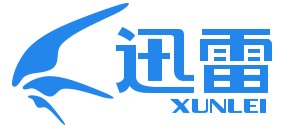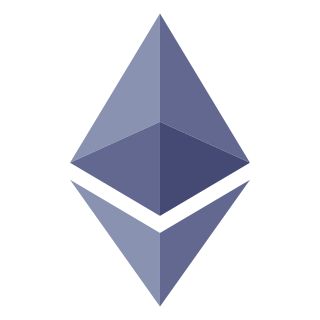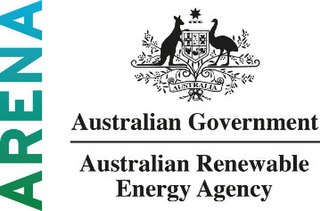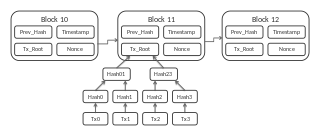A virtual power plant (VPP) is a cloud-based distributed power plant that aggregates the capacities of heterogeneous distributed energy resources (DER) for the purposes of enhancing power generation, as well as trading or selling power on the electricity market. Examples of virtual power plants exist in the United States, Europe, and Australia.

Xunlei Limited is a Chinese multinational technology company and an online service provider founded in 2003. The subsidiary of Xunlei Limited, Shenzhen Xunlei Networking Technologies, Co., Ltd. was formerly known as Sandai Technologies (Shenzhen) Inc. and changed its name to Shenzhen Xunlei Networking Technologies, Co., Ltd. in May 2005. Its headquarters are in Nanshan District, Shenzhen.

Solar Cities is an innovative A$97 million demonstration programme designed to promote solar power, smart meters, energy conservation and new approaches to electricity pricing to provide a sustainable energy future in urban locations throughout Australia. Adelaide, Alice Springs, Blacktown, Central Victoria and Townsville were nominated to be the first Solar Cities of Australia, in the 2007 election campaign the Labor government committed to expanding the programme to include Coburg and Perth. Solar Cities is an innovative program that aims to show how technology, behavior change, and new approaches to energy pricing can combine to provide a sustainable energy future in urban locations throughout Australia".
The smart grids in South Korea constitute a platform that is re-imagining electricity grids, equipping it with technology that allows more capability, particularly in addressing the demands of the 21st century and the future. This process follows a modular approach to grid construction and focuses on the development of the IT-enabling of its electric power generation system. The country views the smart grids, along with the so-called "new energy industries", as an emergent pillar of the Korean economy.
South Australia is rich in energy. It contains significant reserves of fossil fuels such as natural gas, coal, and oil – although there are incentives to phase these out in favour of clean energy. The state also contains large amounts of uranium, including the world's single biggest deposit at Olympic Dam, which represents 30% of the world's total resource.

Ethereum is the second-largest cryptocurrency platform by market capitalization, behind Bitcoin. It is a decentralized open source blockchain featuring smart contract functionality. Ether is the cryptocurrency generated by Ethereum miners as a reward for computations performed to secure the blockchain. Ethereum serves as the platform for over 260,000 different cryptocurrencies, including 47 of the top 100 cryptocurrencies by market capitalization.

The Australian Renewable Energy Agency (ARENA) is an independent agency of the Australian federal government, established in 2012 to manage Australia's renewable energy programs, with the objective of increasing supply and competitiveness of Australian renewable energy sources.

Counterparty is a peer-to-peer financial platform and distributed, open source Internet protocol built on top of the Bitcoin blockchain and network. It was one of the most well-known "Bitcoin 2.0" platforms in 2014, along with Mastercoin, Ethereum, Colored Coins, Ripple and BitShares. It is a "metacoin"-type protocol. It provides such features as tradable user-created currencies, additional financial instruments and a decentralized asset exchange. In November of 2014, Counterparty added support for the Ethereum Virtual Machine to the Counterparty protocol and allowing all Ethereum decentralized applications to be run on the Bitcoin blockchain within the Counterparty protocol.

A blockchain, originally block chain, is a growing list of records, called blocks, that are linked using cryptography. Each block contains a cryptographic hash of the previous block, a timestamp, and transaction data.

Augur is a decentralized prediction market platform built on the Ethereum blockchain. Augur is developed by Forecast Foundation, which was founded in 2014 by Jack Peterson, Joey Krug, and Jeremy Gardner. Forecast Foundation is advised by Ron Bernstein, founder of now-defunct company Intrade, and Ethereum founder Vitalik Buterin.

Renewable energy in the Cook Islands is primarily provided by solar energy and biomass. Since 2011 the Cook Islands has embarked on a programme of renewable energy development to improve its energy security and reduce greenhouse gas emissions, with an initial goal of reaching 50% renewable electricity by 2015, and 100% by 2020. The programme has been assisted by the governments of Japan, Australia, and New Zealand, and the Asian Development Bank.
R3 is an enterprise blockchain technology company. It leads an ecosystem of more than 300 firms working together to build distributed applications on top of Corda for usage across industries such as financial services, insurance, healthcare, trade finance, and digital assets. It is headquartered in New York City. It was founded in 2014 by David E Rutter. The current CTO is Richard G. Brown.
ConsenSys is a blockchain software technology company founded by Joseph Lubin with headquarters in Brooklyn and additional United States offices in Washington, DC and San Francisco.
An initial coin offering (ICO) or initial currency offering is a type of funding using cryptocurrencies. It is often a form of crowdfunding, however a private ICO which does not seek public investment is also possible. In an ICO, a quantity of cryptocurrency is sold in the form of "tokens" ("coins") to speculators or investors, in exchange for legal tender or other cryptocurrencies such as Bitcoin or Ethereum. The tokens are promoted as future functional units of currency if or when the ICO's funding goal is met and the project successfully launches.
EOS.IO is a blockchain protocol powered by the native cryptocurrency EOS. The smart contract platform claims to eliminate transaction fees and also conduct millions of transactions per second.

NEO is an open-source blockchain decentralized application platform founded in 2014 by Da HongFei and Erik Zhang. Since its rebranding to NEO from Antshares in 2017, the project's vision is to realise a "smart economy" by utilizing blockchain technology and smart contracts to issue and manage digitized assets.

Energi Mine is a United Kingdom based blockchain technology company, that develops products in the energy management sector. It uses deep learning artificial intelligence models to trade and manage energy. In February 2018, Energi Mine completed an Initial Coin Offering (ICO).
The Aventus Protocol is an open standard event ticketing platform based on blockchain. The protocol was first outlined by Annika Monari and Alan Vey in a 2016 white paper. The two met in 2015 while studying for their master's degrees at Imperial College, London. They are co-founders and directors of the Aventus Protocol Foundation which oversees Aventus Systems, the only company running the protocol.
Aragon is an open-source software project that allows for the creation and management of decentralized organizations.








